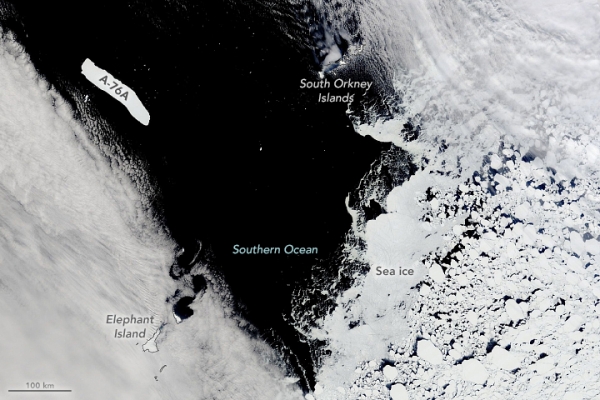In October 2022, a clearing in the clouds revealed a huge, geometric piece of ice floating in the Drake Passage. This is Antarctic iceberg A-76A—the biggest remaining piece of what was once the largest iceberg floating in the world’s oceans.
The berg is visible in this natural-color image, acquired on October 31, 2022, with the Moderate Resolution Imaging Spectroradiometer (MODIS) on NASA’s Terra satellite. Notice the iceberg’s long tabular shape is distinct from the sea ice farther south in the Southern Ocean. (Icebergs are not sea ice; they are the floating fragments of glaciers or ice shelves, whereas sea ice is frozen seawater that floats on the ocean surface.)
The iceberg’s parent berg (A-76) broke from Antarctica’s Ronne Ice Shelf in May 2021. At the time, it was the largest iceberg anywhere on the planet. Within a month, the iceberg lost that status when it broke into three named pieces. The largest of those pieces—Iceberg A-76A—now drifts nearly 2,000 kilometers (1,200 miles) away in the Drake Passage. The passage is a turbulent body of water between South America’s Cape Horn and Antarctica’s South Shetland Islands, including Elephant Island visible in this image.
Read more at: NASA Earth Observatory
Photo Credit: NASA Earth Observatory


